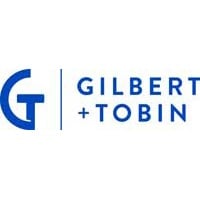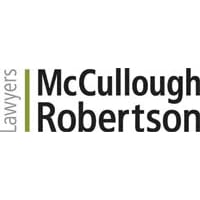
Australia 2019

General manager – legal | Wesfarmers





Sheldon Renkema
General manager – legal | Wesfarmers
General manager – legal | Wesfarmers
Amongst a select group of lawyers known as pioneering in-house legal professionals recognised for their development of legal operations, Sheldon Renkema – Wesfarmers general manager of legal – takes a...
What are the most important transactions and litigations that you have been involved in during the last two years?
The acquisition of Catch Group Holdings Limited in June 2019 for A$230m, the acquisition of Geeks2U by Officeworks in February 2019, using a unique scrip consideration structure and the demerger of Coles from Wesfarmers in November 2018 for approximately A$1bn, focusing on the separation and transition work stream. I have also been involved in the sale of Kmart Tyre and Auto Service to Continental in August 2018, for A$350m and advised on the acquisition of the Kmart trade mark in Australia and New Zealand in August 2017, for A$100m.
How do you suggest in-house lawyers build strong relationships with business partners?
A key principle for building a trusted relationship is reciprocity. It is critical in the relationship with business partners that lawyers give them something that they value, that surprises or impresses them, and makes it clear that the role of the lawyer is to support the business to achieve value for shareholders. Having a trusted relationship then allows some more flexibility in interactions that can work to the benefit of the lawyer.
What legal and management trends do you see having an impact in your market?
The increasing fragmentation of external legal services (with new (newlaw) entrants and the emergence of legal technology), the sophistication of in-house legal teams with the growth of legal operations and the ongoing push for efficiency in legal teams (as with other functions).
The growth of importance of CLOC is also a key trend, and one that I’m conscious of as one of the co-convenors of CLOC Australia.
What “legal tech” products do you currently utilise, and do you foresee implementing more of these in the near future?
We have a suite of legal tech products including for document management (iManage), matter management (Xakia), self-serve tools (using Neota Logic) for confidentiality agreements, contract review and marketing campaign review. We have also used or are trialling other products such as external counsel tender applications (Persuit), contract review with machine learning capacity (LawGeex)
We expect to increase our use of legal technology, consistent with our technology roadmap. An interesting initiative has been working closely with a talented secondee from Herbert Smith Freehills who has a background in software development and law to build some of these self-serve tools. This has given us access to a person with unique skills that we would not otherwise be able to draw on.
Have any new laws, regulations or judicial decisions greatly impacted your company’s business or your legal practice?
Yes, increasing regulation is a relentless pressure on us. Key areas are privacy, anti-bribery, competition and consumer law, regulation relating to cyber threats and more.
What do you feel are the most effective techniques for getting the most out of external counsel, in terms of how to instruct them?
Building strong relationships is important so that we know that they understand our business and the imperative we have for quality legal advice that is provided at good value. Ensuring we have clear rules around billing. Making use of capped or fixed fee arrangements to give us fee certainty. It is also important to appreciate that external lawyers need clear instructions to be able to advise accurately and cost effectively.
The challenges of in-house legal practice have been well-documented. Like others, the Wesfarmers corporate solicitors office has seen growth in demand for our services – due to an increasingly sophisticated internal client base together with the relentless expansion of regulation – and pressure on our costs – as we seek to ensure that we are a lean corporate function that supports the company’s objective of delivering a satisfactory return to its shareholders.
As much as we are in a time of pressure we are also in a time of opportunity. Resources to support continuous improvement initiatives are more accessible, the disaggregation of legal services has made outsourcing more feasible and the proliferation user-friendly legal technology allows us to implement automation solutions.
But where do we direct our efforts at outsourcing and automation as part of our continuous improvement focus? At Wesfarmers, our approach has been to assess two key parameters of the matters the legal team works on. First is the complexity of the work, which is an evaluation by the lawyer of the complexity of the legal issues as well as the commercial and factual complexity of the matter. The second is an evaluation of how the legal team’s advice on each matter contributes to the strategy of the entire company or the strategy of the individual business unit to which it relates.
We view work which rates low in complexity and low in strategic significance are suitable for automation or outsourcing (provided there is a suitable resource available). This has resulted in the development of a self-serve tool that allows internal clients in our businesses to create and execute confidentiality agreements without our lawyers touching them and a marketing campaign review tool that guides marketing team members through the legal issues to consider in creating marketing campaigns, such as the way an offer is described and how disclaimers are used.
These self-serve tools (as well as others that are in development) are intended to be a cost-effective way to free up our experienced lawyers to direct their efforts to complex and strategically significant work that makes best use of their deep expertise and knowledge of our businesses. It also means that our lawyers are doing more stimulating and interesting work and can focus on their role as a trusted advisor, empathetically supporting internal clients and the business challenges they face.